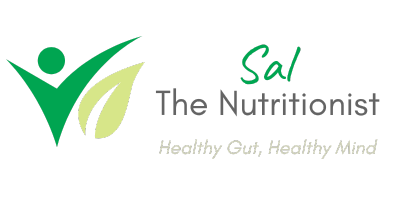Most of us have felt depressed at some stage in our lives. But what if your depression is serious and stops you from living life to the full?
The holistic way of treating depression or any mental health condition is to look at the whole person. What are they eating, what do they do in their spare time, what work do they do, what social connections do they have and the list goes on.
When seeking help, most people think of a psychologist/counsellor or perhaps a kinesiologist or healer. A nutritionist looks at the person’s diet first and foremost but also looks at what is contributing towards the depression in the first place. Here are some of the factors:
- Blood sugar imbalances
- Poor gut function
- Food intolerances/allergies
- Hormone imbalances
- Stress, insomnia
- Nutrient deficiencies
- Obesity, inflammation
- Unresolved emotional thoughts
- Neurotransmitter imbalance
- Heavy metal toxicity
- Lifestyle – exercise, work, school, lack of sunlight, gaming, social media
- Biochemical/physiological imbalances
Here are MY top 5 tips for helping with depression:
1. Diet
A wide and varied diet is really important but if that’s too challenging, make sure you eat these foods:
Vegetables – packed full of antioxidants and other essential nutrients. For example, green leafy vegetables are full of folate and B vitamins, needed for good brain function. Most people don’t eat enough veggies. As well as adding steamed veggies to your dinner, add spinach to a smoothie, left-overs for lunch and veggie sticks with a dip such as hummus.
Omega 3 – oily fish such as mackerel and sardines, mackerel, walnuts, flaxseeds, avocado.
B vitamins – vital for the production of our neurotransmitters (brain chemicals). Include wholegrains (brown rice, brown basmati rice, quinoa, buckwheat, oats, amaranth, millet), meat, nuts, seeds, green leafy veggies, bananas, legumes, lentils in your diet.
Protein – without protein, we can’t produce our neurotransmitters which are essential for healthy nervous system function. Also great for balancing hormones. Protein rich foods include meat, dairy, legumes, nuts, seeds, eggs, tofu, tempeh.
I know I’m stating the obvious but try to avoid refined carbohydrates and sugar as much as you can.
2. Gut Health
Gut health is closely connected with depression. Your gut is your second brain via the gut-brain axis. A healthy diet is essential but you could have an imbalance in good and bad bacteria or you may not be absorbing nutrients sufficiently.
3. Sunlight
A good dose of Vitamin D always lifts your mood but it also affects your melatonin production. Try to get sunlight in the morning. It’s also a good idea to get your Vitamin D levels checked.
4. Lifestyle
Do you exercise or get out for a walk in the park? Exercise is top of the list for helping with depression but it’s not always easy to get motivated, right? Do it with a friend or join a group class. Both will keep you motivated.
A walk in the park will do wonders for your mental health. Research has shown that green spaces have a positive impact on mental health.
5. Get Help
If you think you may have depression or you have been diagnosed, there is always support out there. Nutrition plays a part in the mental health jigsaw, along with psychological therapies. Get help today.
Tags
[tags_all_in_one number=”20″ smallest=”11″ largest=”11″ unit=”px” separator=” ” orderby=”name” order=”asc” post=”true”]

